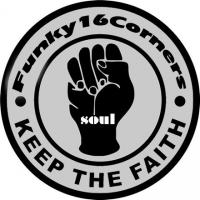Mulatu articcle in NYT (RR)
 funky16corners
7,175 Posts
funky16corners
7,175 Posts
Film Puts a New Focus on the Master of 'Ethiojazz' By BEN SISARIOIn Jim Jarmusch's latest movie, "Broken Flowers," a graying former ladies' man played by Bill Murray has a strange companion with him as he searches for some old girlfriends, one of whom may have borne his son. He's gloomy but intrigued by the quest, and his mood is matched by the passenger in his rental car: a CD of brooding and mysterious music, a little funky and a little slithery, a bit like a 1970's blaxploitation soundtrack and a bit like dense modal jazz. He never seems to know what to make of it, but he clearly likes it.The music is a particularly obscure vintage made in Ethiopia in the late 1960's and early 70's by a jazz innovator named Mulatu Astatke, and thanks to "Broken Flowers" and an acclaimed series of CD's, his music has enjoyed a little renaissance lately. A prominent figure in Ethiopia but barely known to Western listeners, Mr. Astatke makes a rare United States appearance tonight at Joe's Pub with the Either/Orchestra, an avant-garde jazz group that has championed him.From the moment Mr. Jarmusch first heard it, about six years ago, the music got under his skin, he said, and he began seeking it out wherever he could find it. "When I was writing 'Broken Flowers,' " he said by phone from his home in the Catskills, "I was listening to a lot of his music, and I was thinking, 'How do I get this music into a film that's set in suburban America?' It even led me to make the character of Jeffrey Wright of Ethiopian descent." In the film, Mr. Wright's character, Mr. Murray's next-door neighbor, gets him started on his journey and hands him the disc. Several songs by Mr. Astatke are used prominently in the film, and are on the soundtrack album, released by Decca.Mr. Astatke, a vibraphonist and bandleader, had a suitably cosmopolitan upbringing for a music that blends jazz with funk, Latin music and traditional Ethiopian five-tone scales. Born in 1943 in the western Ethiopian city of Jimma, he was one of the few musicians of his generation to be educated abroad. He went to the Trinity College of Music in London, where he studied clarinet, harmony and theory, and in the early 60's attended the Schillinger House of Music in Boston, now the Berklee College of Music."My whole idea," he said by phone the other day from his home in Addis Ababa, "was sort of fusion with Ethiopian and jazz and modern music. I started at Berklee this idea of the 'Ethiojazz' business. From there I came to New York and I had this group, and what I wanted to do, I did it there." His group in New York, the Ethiopian Quintet, was mostly Puerto Rican. He recorded two albums in the 60's on a small New York label, Worthy. He jammed with Dave Pike, who was Herbie Mann's vibraphonist at the time, and remembers his time here fondly. "We had all these big bands," he said. "And the Village Gate, the Village Vanguard, the Palladium - there were all these clubs around at that time." He was surprised and delighted to learn that the Vanguard is still in business. "It's still around?" he said. "Fantastic! Wow!" Mr. Astatke returned to Ethiopia in the late 60's and took part in a fertile musical scene there in the waning years of Emperor Haile Selassie, who was deposed in 1974. Establishing himself as a jazz ambassador, he brought the Hammond organ and vibraphone to Ethiopia. "I changed the whole Ethiopian music," he said without shyness, "combining jazz and fusion with the Ethiopian five-tone scales. Since then my name has been on the very, very top of the Ethiopian musical scene." The music of that period, influenced by American funk and soul, is being collected in "??thiopiques," a series of albums on the French label Buda Musique, which since the late 90's has run to 20 volumes. Mr. Astatke's disc, Vol. 4, is its best seller and has seen a bump in sales since "Broken Flowers" was released in August. It is now selling about 1,800 copies a week, said a spokeswoman for Allegro, the albums' American distributor; that is equivalent to the sales of a new album by a world music star like Youssou N'Dour. Last year the Either/Orchestra, led by the saxophonist and composer Russ Gershon, performed in Addis Ababa and met Mr. Astatke. The group has since brought him to the United States for concerts twice, the first times Mr. Astatke had performed in New York in many years. After performing at Joe's Pub tonight, they will go on a brief Northeastern tour, traveling to Boston, Philadelphia, Washington and Colgate University in Hamilton, N.Y. Mr. Astatke said he had been following news of "Broken Flowers" by e-mail ("I'm very far away") but had not yet seen them film in its entirety. He added, with a laugh, "I'm going to see it in New York."

Comments
Dope. Thanks for posting.
To me, the music was the best part of the movie.
http://www.radioopensource.org/ethio-jazz-with-mulatu-astatq-and-the-eitherorchestra/
Is this like all the Soca records from NY where they have an ad for a Trini travel agent on the back? That's the best thing about Soca. Hmmm, probably not. Just did a google and Ethiopian Airlines has a CD on their Duty Free catalog
right after cigarettes, just before Men's cologne:
Classic Music CD
By : Girma Yifrashewa
13.00
Echos of Ethiopia CD
By : Mulatu Astatke
20.00/Set
Mood Swings CD
By : Nebiyu T. Kebede
9.00
Necktie
By : Afework Tekle
35.00
Washint Melodies CD
By : Yohannes Afework
9.00
Perfumes - Men (Eau de Toilette)
Wow, they even mentioned a Horace Silver influence! Nice.